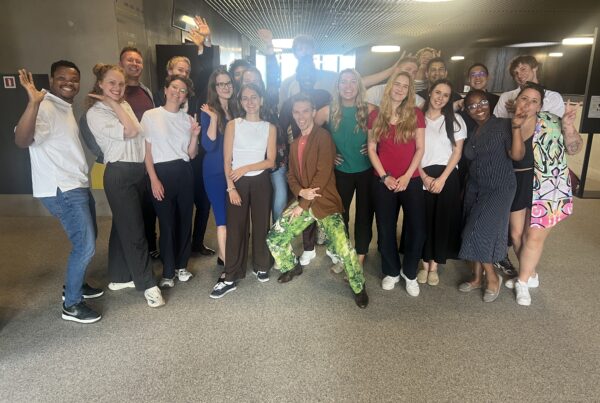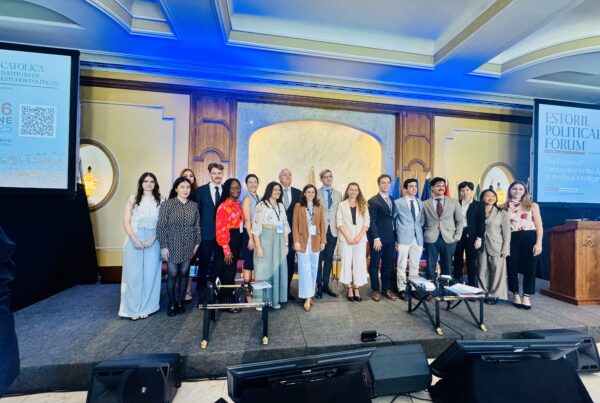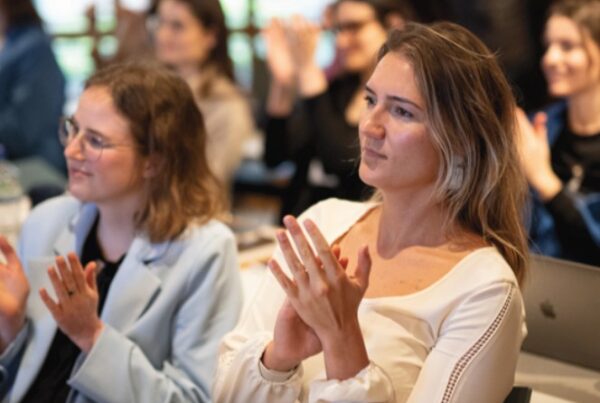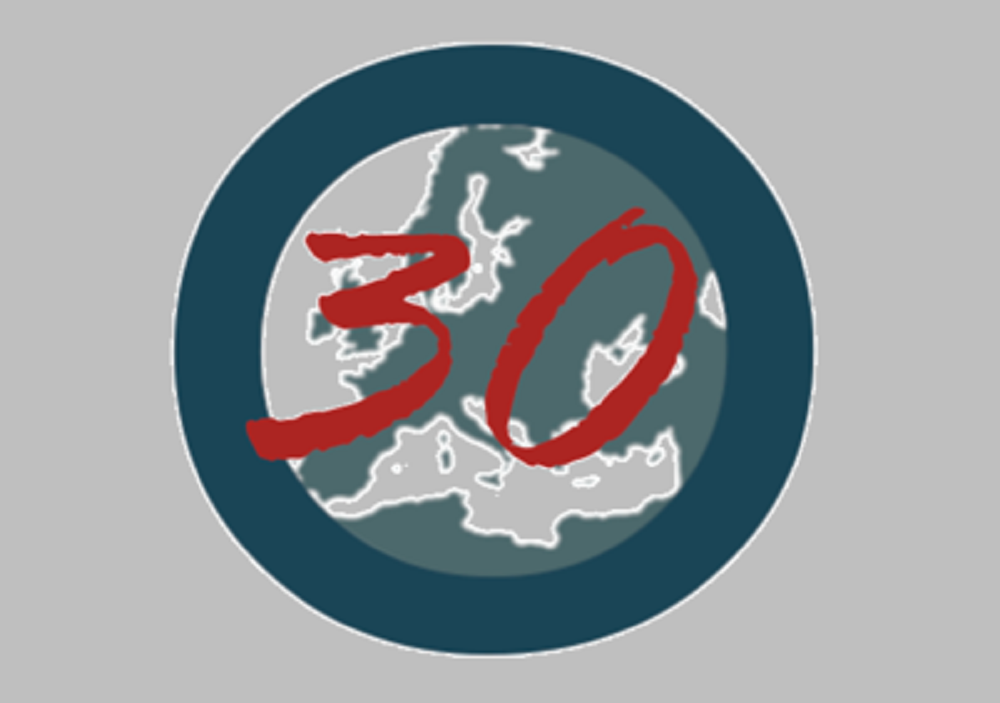
EUROPAEUM BULLETIN
January 2022
EVENTS & DEADLINES
CFP: RECOVERING EUROPE’S PARLIAMENTARY CULTURE, 1500-1700: CONCEPTS, METHODS, APPROACHES
Jagiellonian University, Krakow
22-24 June 2022
This interdisciplinary international conference will explore the culture of early modern Europe’s political assemblies, and ask how it was expressed in language, writing, images, institutions, and symbolic practices. Political consultative assemblies, common in late medieval monarchies throughout Europe, faced transformative changes between 1500 and 1700. Parliaments, States, Estates, Diets, Cortes varied tremendously in their organization, customs, and functions. Yet they shared a transnational inheritance of ideas and methods of deliberation, consultation and representation that added up to a common European tradition.
Representative and consultative institutions have been mostly studied in terms either of legal and constitutional history or of national politics. Yet they should also be seen as cultural phenomena in their own right. We invite papers from scholars of early modern history, political philosophy, intellectual history, literature, classical tradition, arts and material culture to investigate the political, literary and visual discourses and shared experiences of representative political assemblies across Europe during the ‘Long Reformation’
More information on how to apply: https://europaeum.org/conference-on-parliamentary-culture-22-24-june-2022-krakow/
Coming soon:
CFP/CFA EUROPAEUM SPRING SCHOOL ‘LAW AND POWER’
18-20 April 2022, Oxford
SUMMER SCHOOL on Europe and Cultural Heritage – restitution of cultural artefacts
Leuven, date to be confirmed
Save the date:
The Europaeum will be 30!!!
We are celebrating our 30th anniversary on Friday 30 Sept 2022 & Sat 1 October as a big Alumni event and conference. More details to follow.
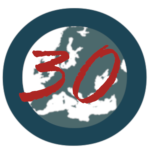
NEWS
TWO MEDALS FOR THE EUROPAEUM
Dr Andrew Graham, Europaeum Trustee and Founder of the Scholars Programme, received two medals for outstanding achievements in late 2021:
The Scaliger Medal, Leiden University
https://europaeum.org/europaeum-is-awarded-the-scaliger-medal/
On 23rd September 2021, The award ceremony began in the Great Auditorium at 16:15, with a word of welcome by the President of the Executive Board, Professor Annetje Ottow. This was followed by an introduction to Justus Scaliger by Rick Honings, who was appointed to the Scaliger Chair in June last year and recently completed a publication on Scaliger. Then Kasper van Ommen, Curator and Coordinator of the Scaliger Institute, further explored a topic that goes back centuries: the appeal of Leiden University to foreign students and scholars. And finally, after the laudatio by the President, the medal was awarded and received on behalf of The Europaeum by Dr Andrew Graham, Trustee and Founder & Honorary Advisor to the Europaeum Scholars Programme.
YouTube video of the event: https://youtu.be/LfHK91FHl5w
Leiden University coverage: https://www.universiteitleiden.nl/nieuws/2021/09/universiteit-leiden-reikt-scaligerpenning-uit-aan-academisch-gemeenschap
UPF coverage: https://www.upf.edu/en/home/-/asset_publisher/1fBlrmbP2HNv/content/id/249168227/maximized#.YVXrRZrMJPZ
Gold Medal from Charles University, Prague
https://europaeum.org/medal-2021-charles-university/
On 24 September 2021, the Rector of Charles University, Professor Tomáš Zima, was pleased to award a Gold Medal to Dr Andrew Graham in recognition of the strong reinvigoration of the Europaeum that has occurred under his leadership. In particular, Dr Graham had created the new Europaeum Scholarship Programme in 2017 and, alongside this, the membership has grown from the equivalent of ten full members in 2016 to eighteen full members today.
More details about this on the Charles University website: https://cuni.cz/UKEN-379.html?news=13550&locale=en
EUROPAEUM SCHOLARS PROGRAMME
COHORT 2 COMPLETED
Cohort 2 of the Scholars Programme presented their projects alongside the Conference ‘Crisis as an opportunity for Europe?’ in sunny Toledo, October 2021. Their policy recommendations can be seen on our website: https://europaeum.org/scholars-programme-policy-recommendations-2021/
Huge congratulations on their achievements, entirely done online under extremely difficult circumstances!
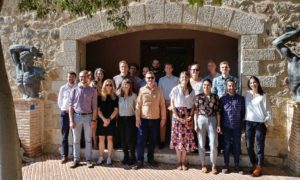
A SCHOLAR’S VIEWPOINT (Nils Renard):
What is the Scholars Programme really like? We are grateful to Nils Renard, a member of the 2020-21 cohort, for sharing his experiences in this interview: https://europaeum.org/the-scholars-programme-a-scholars-viewpoint/
And a report on the programme by Lukas Spielberger:
WE ARE LOOKING FOR A NEW ADMINISTRATOR
Please share this link with anyone you think might like to apply for this central position in the Europaeum: https://europaeum.org/vacancy-administrator/
The application deadline is 21st January.
ENDORSEMENT FROM ONE OF THE ATTENDEES OF THE CLASSICS COLLOQUIUM IN MADRID, SAOIRSE MCGILLIGAN:
“In the last week of November, I was so happy to attend the Europaeum Classics Colloquium in Madrid. It took place at the centre of the Complutense University of Madrid and at the Museo Arqueológico Nacional, so we were able to see a lot of Madrid! The colloquium consisted of a three-day conference where students presented their papers on the theme of “change” in Classics.
Initially, I had been unsure about my presentation since my paper – “Catasterism: Exploring Environmental Political Thought in Metamorphoses” – was more about the reception of Classics than others’ appeared to be. However, there was such a variety of talks. The days were filled with different discussions, including student-led panels, roundtables, and key-note speakers by prominent academics. Interspersed among these were meals organised across Madrid which provided opportunities to discuss the ideas in relaxed setting, or just get to know the people you were listening to speak. Thanks to this mixture, I really gained a lot more from the experience than I had initially expected. I had anticipated that the conference would be a good opportunity for me to develop my ideas within my research-area, but the variety of talks encouraged new ideas and enabled me to recognise how I can make my research engage with the wider environment. I can’t thank the Europaeum Network enough for their support throughout the conference, up until the very last night when they assisted me with the last-minute Covid changes! I’d finally also like to thank the University of St Andrews and the Spanish Society for Classics Studies for the opportunity. For anyone considering applying for the Europaeum events, my one piece of advice is: do! It might seem a little daunting at first, but it offered amazing opportunities to challenge and improve my research approach in a constructive and friendly environment.”
And here is the very moment when the panic over Boris Johnson’s vague announcement about new travel restrictions was over:
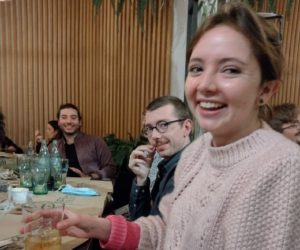
Please send us any relevant items we may be able to include in the next issue. Please note we have moved over to office@europaeum.org as our main office mailbox now (the old mailbox will redirect).
You are receiving this email because you opted in via our website or because you are an important Europaeum contact at a member university. To opt out please email office@europaeum.org or unsubscribe on our website
THE EUROPAEUM
c/o St Antony’s College | 62 Woodstock Road | Oxford OX2 6JF

